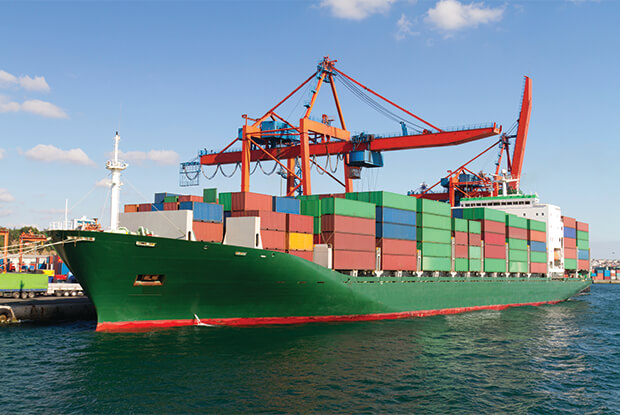Germany has become the latest country to offer more attractive export credit guarantee pricing and conditions for climate-friendly transactions.
In a policy scheduled to take effect from November 1, applicants for export credit support from the energy, transport and heavy industry sectors will be graded based on the alignment of their transactions to the Paris Agreement target of keeping global warming under 1.5 degrees Celsius.
Export credit guarantees, investment guarantees and untied loans will be cheaper for transactions that support the 1.5 degrees goal. The down payment on local costs will also be waived, government coverage will be boosted from 95% to 98%, and German content will only need to form 30% of the overall transaction.
Additionally, a surcharge on local currencies will be removed, meaning the premium paid will remain the same regardless of the currency used.
Current pricing and terms will apply to transactions classified as compliant with the global warming limitation target. Those that are not aligned will be refused cover.
Overall, the policy aims to make German export credit cover with developed countries climate-neutral by 2045 and with developing countries by 2050. Euler Hermes administers the export credit policy, overseen by Berlin’s climate and economy ministry.
An analysis of German export credit guarantees issued between January 2022 and June 2023 found that around 80% of the cover volume would have fallen under the purview of the new policy. Among these covered transactions, 80% were classified as Paris-aligned but not green, while just 4% would have been ineligible according to the policy criteria.
Transactions not in the three sectors and with a value of more than €15mn will be assessed according to the climate impact assessments of the EU’s taxonomy and the World Bank’s guidelines.
Along with several other key providers of state-backed export finance and insurance, Germany is a signatory to the 2021 Glasgow statement, in which it agreed to end all government financial support for unabated fossil fuels by the end of 2022.
But the country has been heavily criticised for missing that target and for its delayed publication of a pathway to end export credit support for fossil fuels.
Germany was the second-largest provider of export credits to fossil fuel projects between 2015 and 2020, extending €6.45bn of support to the sector, data published by the Export Finance for Future (E3F) coalition of export credit agencies (ECAs) last year showed.
But the country’s provision of €4.3bn in support to the renewable energy sector was also the second-largest of the E3F coalition during those five years, according to the same data.
Alongside the net-zero policy, Germany is also introducing untied financial loans for projects that “contribute to the supply of German industry with energy from sustainable energy sources” through long-term contracts, such as sourcing material for manufacturing batteries.
Such united loans were previously only available for raw material supply.
The Association of German Chambers of Commerce and Industry, which lobbies on behalf of exporters, welcomed the government’s latest policy and described it as “important support”, particularly for smaller companies.
“We understand that the instruments will have to be adapted over time to geopolitical circumstances and, of course, to the socio-ecological transformation,” says the association’s head of foreign trade Volker Treier. “In the end, of course, it is not the guidelines on paper that are relevant for companies, but the implementation.”
“With all the changes, it is important that Germany does not go it alone, but coordinates internationally through the OECD in order to maintain a level playing field,” he says.
Earlier this year the participants in the OECD Arrangement on export credits, which sets minimum standards for most developed countries, agreed to extend payment terms and allow greater flexibility in structuring export credit support for green projects.
Many individual ECAs have also launched products designed to stimulate climate-friendly exporters, such as Sweden’s EKN, UK Export Finance and Export Development Canada.







